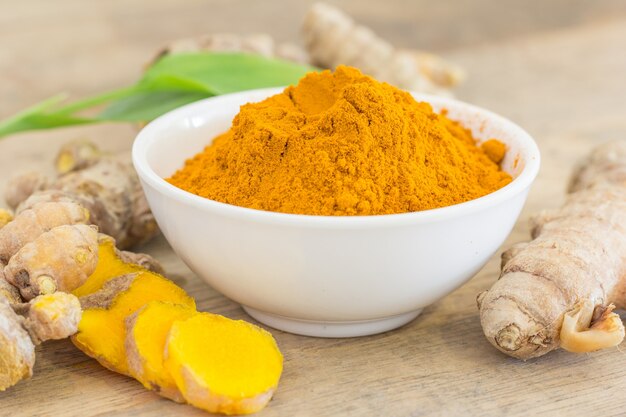
### Turmeric Supplements: What You Need to Know
**Introduction**
Turmeric, widely known as a vibrant spice in Asian cuisine, also holds a long-standing reputation for its medicinal properties. Extracted from the root of the turmeric plant, supplements made with this curcumin-rich ingredient possess a host of health benefits. Curcumin, the yellow compound responsible for turmeric’s distinctive color, plays a central role in its therapeutic use. Historically, turmeric has been utilized in Ayurveda and Traditional Chinese Medicine to address issues such as joint pain, inflammation, heartburn, ulcers, wounds, and even skin conditions like eczema. Additionally, it has been found to support digestion and alleviate gynecological concerns. Native to India, China, and other parts of Asia, turmeric is cultivated as a perennial plant that grows about 0.5 to 1.5 meters tall.
—
**The Nutritional Value of Turmeric**
Turmeric, scientifically called *Curcuma longa*, is rich in several nutrients that contribute to its antioxidant and anti-inflammatory properties. These include:
– Beta carotene
– Ascorbic acid (Vitamin C)
– Calcium
– Fiber
– Niacin
– Iron
– Flavonoids
– Potassium
– Zinc
– Curcumin
The National Center for Complementary and Alternative Medicine has highlighted the potential of curcumin in treating various diseases.
—
**Health Benefits and Uses**
1. **Digestive Health**
Turmeric supplements may help with digestive issues such as peptic ulcers, pain, upset stomach (dyspepsia), and high cholesterol-related digestion problems. Due to its anti-inflammatory properties, turmeric can also alleviate symptoms of inflammatory bowel diseases like IBS by reducing internal swelling and promoting gut health.
2. **Cancer Support**
Studies suggest that turmeric can prevent or even treat certain forms of cancer. Research has shown that curcumin interferes with processes that encourage cancer cell metastasis, especially in neck and cranial cancers. It’s also been noted that topical applications of turmeric may reduce symptoms of skin cancer, including itching and irritation.
3. **Rheumatoid Arthritis and Joint Pain**
Curcumin has been observed to reduce joint swelling and inflammation associated with rheumatoid arthritis. Researchers have found it beneficial for easing osteoarthritis symptoms, improving mobility and reducing pain, both as a standalone treatment and when combined with other herbal remedies.
4. **Cholesterol Management**
Taking turmeric supplements has been linked to a reduction in bad cholesterol (LDL) and triglycerides, particularly in individuals dealing with obesity or high cholesterol levels.
5. **Relief from Chronic Itching**
Turmeric supplements have shown promise in lowering the severity of chronic itching caused by allergies or skin sensitivities.
—
**Other Conditions Where Turmeric May Help**
Turmeric has been investigated for its role in alleviating a wide range of health conditions, including but not limited to:
– Stomach pain
– Crohn’s Disease and Ulcerative Colitis
– Bloating
– Loss of appetite
– Liver disorders
– Jaundice
– Bronchitis and colds
– Menstrual irregularities
– Alzheimer’s disease
– Diabetes
– Depression
– Skin problems like acne, dermatitis, and psoriasis
—
**Why Turmeric Supplements Are Effective**
Turmeric supplements derive their potency from their active ingredient, curcumin, which is prized for its antioxidant, anti-inflammatory, antibacterial, and nootropic (brain-boosting) properties. Here’s how they work:
– **Antioxidant Properties**
Turmeric helps fight harmful free radicals that damage cell structures and contribute to aging and chronic illnesses like cancer. Regular intake of turmeric supplements may safeguard cellular health.
– **Brain Support**
Curcumin has nootropic benefits that improve cognitive performance by promoting efficient communication between neurons. It also prevents the buildup of harmful proteins in the brain, which are linked to neurodegenerative diseases like Alzheimer’s.
– **Blood-Thinning Properties**
Turmeric has anticoagulant effects, which support better blood flow and reduce the risk of clots, lowering the chances of strokes or heart attacks.
– **Liver Protection**
Turmeric protects the liver by enhancing bile production, aiding digestion, and helping the body detoxify from harmful substances like alcohol.
– **Enhanced Absorption**
Supplements often contain concentrated amounts of curcumin, which is much higher than what’s found in raw or powdered turmeric, for better absorption and long-term benefits.
—
**Precautions and Safety Tips**
Turmeric supplements are widely available, but not all products are created equal. Here are a few things to keep in mind when selecting a supplement:
1. Choose products with at least 95% curcumin concentration.
2. Opt for formulas with enhanced bioavailability (easier absorption by the body).
3. Verify that claims made on the product label are backed by clinical research.
4. Make sure the supplement suits your health conditions and medications.
**Important Warnings**
– Turmeric supplements might contain heavy metals or harmful solvent residues due to the extraction process. Always purchase from reputable brands.
– Pregnant or breastfeeding women should avoid turmeric supplements, as they may stimulate the uterus or disrupt hormonal functions.
– People with gallbladder issues, diabetes, bleeding disorders, or GERD should consult a doctor before using turmeric supplements.
– Turmeric may interact with medications, especially blood thinners, antidiabetic drugs, and herbal supplements like garlic or ginger, increasing the risk of side effects.
—
**Potential Side Effects**
When consumed in moderation, turmeric is generally safe. However, excessive use may cause:
– **Stomach Issues**: Overdosing on turmeric can lead to nausea, stomach pain, and potentially ulcers.
– **Skin Allergies**: Some individuals may develop rashes or skin irritation due to allergic reactions.
– **Drug Interactions**: Turmeric can lower the effectiveness of medications by increasing stomach acidity. Avoid combining it with anticoagulants or diabetes medications.
—
**Final Thoughts**
While turmeric supplements provide impressive health benefits, moderation is key. Too much turmeric—over 3 grams daily—can lead to adverse effects. When taken responsibly, these supplements can significantly contribute to managing and preventing numerous health conditions. Before starting any supplement, consult a healthcare professional, especially if you’re on medication or have preexisting health issues.